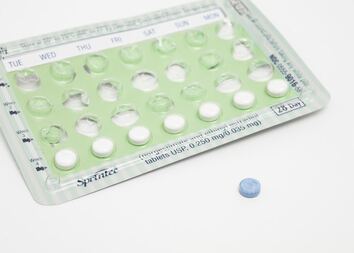Authored by Dr. Barrett
| We have trillions of microorganisms (bacteria, viri, and parasites) living in our intestinal tract. This relationship between humans and microbes has evolved over millions of years. The collection of microbes that we carry on and in our body is called the microbiome. Our microbiome starts to develop the moment we are born and complete colonization happens within the first three years of life. The microbiome is constantly under flux for the rest of our lives. |
These microbes do many things for us. So much in fact that without them it would be difficult for us to survive. They digest certain fibers turning them into short chain fatty acids that we need for our digestive health. They communicate with our immune cells and control how we respond to infections. New research indicates that there is a strong connection between our brain health and our microbiome. The microbiome is also considered to be an endocrine organ because it exerts influence on distant organs and pathways (1).
Oral contraceptive pills (OCPs) also known as birth control, impacts the health of our microbiome. The hormones that are naturally produced in our bodies and the hormones that we take orally both impact the composition of our microbiome (2). It makes sense that taking hormones orally would alter the microbiome. For millions of years we were only exposed to hormones that we produce naturally. It’s only been in the last 70 years that we started taking hormones by mouth.
Folks who take oral birth control (hopefully) know that when they take antibiotics the birth control pill can become much less effective. One hypothesis for this effect is that antibiotics dramatically alter the microbiome where a significant amount of estrogen metabolism takes place (3).
Unfortunately the birth control pill can also increase your risk of inflammatory bowel disease. In two large studies it was found that women who use oral contraceptives for over 5 years had a significantly increased risk for developing inflammatory bowel disease, particularly Crohn’s (4).
It’s not just the gut microbiome that’s impacted by birth control pills. The vaginal microbiome is also altered and the risk of vaginal yeast infections is increased in people taking birth control pills (5).
We need more research into the microbiome but we know enough now to know that taking oral hormones impacts the health of our microbiome.
In general here are some ways to support a healthy microbiome:
References:
Oral contraceptive pills (OCPs) also known as birth control, impacts the health of our microbiome. The hormones that are naturally produced in our bodies and the hormones that we take orally both impact the composition of our microbiome (2). It makes sense that taking hormones orally would alter the microbiome. For millions of years we were only exposed to hormones that we produce naturally. It’s only been in the last 70 years that we started taking hormones by mouth.
Folks who take oral birth control (hopefully) know that when they take antibiotics the birth control pill can become much less effective. One hypothesis for this effect is that antibiotics dramatically alter the microbiome where a significant amount of estrogen metabolism takes place (3).
Unfortunately the birth control pill can also increase your risk of inflammatory bowel disease. In two large studies it was found that women who use oral contraceptives for over 5 years had a significantly increased risk for developing inflammatory bowel disease, particularly Crohn’s (4).
It’s not just the gut microbiome that’s impacted by birth control pills. The vaginal microbiome is also altered and the risk of vaginal yeast infections is increased in people taking birth control pills (5).
We need more research into the microbiome but we know enough now to know that taking oral hormones impacts the health of our microbiome.
In general here are some ways to support a healthy microbiome:
- Consuming fiber daily from a variety of sources. Aim for 30-35g daily.
- Limit processed foods and high sugar foods in your diet.
- Consume fermented foods.
- Limit your use of antibiotics.
References:
- Qi X, Yun C, Pang Y, Qiao J. The impact of the gut microbiota on the reproductive and metabolic endocrine system. Gut Microbes. 2021 Jan-Dec;13(1):1-21. doi: 10.1080/19490976.2021.1894070. PMID: 33722164; PMCID: PMC7971312.
- Hua X, Cao Y, Morgan DM, Miller K, Chin SM, Bellavance D, Khalili H. Longitudinal analysis of the impact of oral contraceptive use on the gut microbiome. J Med Microbiol. 2022 Apr;71(4). doi: 10.1099/jmm.0.001512. PMID: 35452382.
- Adlercreutz H, Pulkkinen MO, Hämäläinen EK, Korpela JT. Studies on the role of intestinal bacteria in metabolism of synthetic and natural steroid hormones. J Steroid Biochem. 1984 Jan;20(1):217-29. doi: 10.1016/0022-4731(84)90208-5. PMID: 6231418.
- Khalili H, Higuchi LM, Ananthakrishnan AN, Richter JM, Feskanich D, Fuchs CS, Chan AT. Oral contraceptives, reproductive factors and risk of inflammatory bowel disease. Gut. 2013 Aug;62(8):1153-9. doi: 10.1136/gutjnl-2012-302362. Epub 2012 May 22. PMID: 22619368; PMCID: PMC3465475.
- Spinillo A, Capuzzo E, Nicola S, Baltaro F, Ferrari A, Monaco A. The impact of oral contraception on vulvovaginal candidiasis. Contraception. 1995 May;51(5):293-7. doi: 10.1016/0010-7824(95)00079-p. PMID: 7628203.


 RSS Feed
RSS Feed